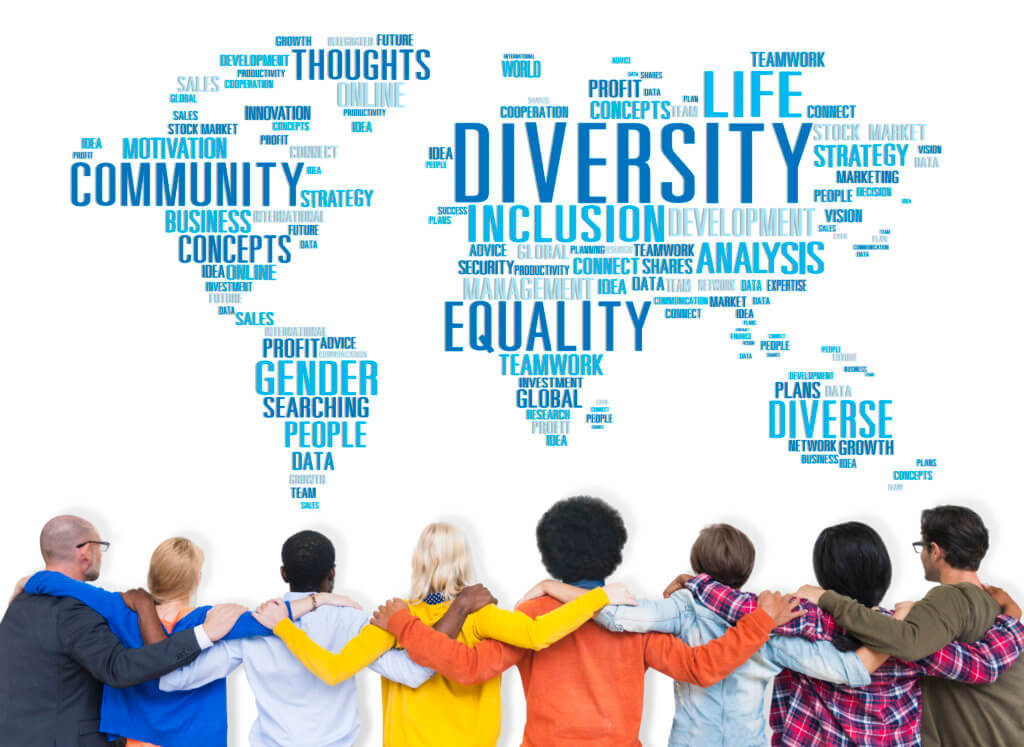Customer and employee relationships are an essential piece of what determines a B2B company’s impact, and the implementation of diversity, equity, and inclusion (DEI) initiatives is a crucial facet of those relationships.
In today’s world, organizations of all sizes are—rightfully so—being held increasingly accountable for their decisions of whether or not they align with DEI goals.
So, what can we do in the B2B space to stay informed and work actively to assist in such efforts? Read on as we explore how you can make a difference toward positive change and how to tackle the complexities that accompany doing so in a remote work environment.
Talent Acquisition
An important step in taking a stance is to allow your talent acquisition efforts to include diversity, equity, and inclusion.
The following facts and statistics can assist you in understanding key issues to consider as you position yourself in a relevant and meaningful way:
- A recent analysis of LinkedIn Self-ID data indicates Black and Latino knowledge workers are currently searching for remote work opportunities at higher rates than their peers.
- Fifty-seven percent of working mothers prefer to work remotely.
- Women with childcare responsibilities are thirty-two percent less likely to quit a remote or hybrid job than those with a strictly in-office job.
- There is a preference for applicants who are neurodivergent and with physical disabilities.
- Ninety-seven percent of Black knowledge workers in the U.S. prefer to work remotely or in a hybrid setting, compared to seventy-nine percent of white workers.
- Employees belonging to the LGBTQ+ community are 1.7 times more likely to face discrimination, and often prefer remote work for that reason.
- The latest “Women in the Workplace 2022” report states that there is still much left to be desired in regard to the representation of women—especially women of color—in corporate America.
- The option to work remotely is especially important to women—only 1 in 10 women wants to work mostly on-site, and many women point to remote and hybrid work options as one of their top reasons for joining or staying with an organization.
Each of these facts invite some sort of action to either contribute to a solution or fill a market need.
None are problems or needs we can address on our own, but two conclusions can be drawn from this list: Remote work is in high demand from a diverse group of interested talent. And, because of this high demand, approaching your talent acquisition with DEI in mind is perhaps easier in a remote setting!
Take time to dissect your organization’s unique needs and how you can address them while simultaneously considering DEI needs that are important to your company culture.
Get the C-Suite Onboard
While some companies successfully hire a diverse pool of talent in remote work settings, that same talent is rarely retained if management doesn’t intertwine their company culture with inclusive practices.
Momentive.ai shares in their research that only 48% of C-level executives consider DEI to be an important factor in their company’s ability to drive success. Yet, 62% of their employees wish their leaders would take initiative on these measures.
It’s important for management to devote as much time to an internal DEI team as they would other internal teams in their organization. Investment in DEI goals is often reflected in how many executives are a part of underrepresented groups—which connects back to the results of the aforementioned acquired (and retained) talent.
According to SHRM:
- Less than 1 percent of Fortune 500 CEOs publicly identify as LGBTQ.
- In 2019, nearly eighty-six percent of Fortune 500 CEOs were white men.
- Women make up fifty-six percent of front-line employees but only twenty-nine percent of the C-suite.
All of this considered, B2B professionals can and should play an integral role in stepping towards a more equitable future.
Developers and marketers alike should consider these findings as they decide on who they aim to please with their respective products, services, company culture, talent acquisition, etc.
As an industry, we need to sharpen our awareness of the inherent biases that are present in both pre and post-pandemic workplaces and stay curious and active in the process of change.
A Step Forward
While most B2B companies can genuinely say they wish to see improvements in the aforementioned inequalities during the coming years, results won’t appear out of thin air. We can learn from those who have already made strides in DEI advancements and take individual action toward betterment.
According to LinkedIn’s blog, “While it’s important to say the right things in an authentic way, those words must be rooted in some type of action. Create content and elevate your stories to change hearts and minds.”
In what ways do your overarching business goals and digital innovations reflect the diverse demands of the world around us?
Expect to see results from your efforts in steps and often at a slow pace—rather than with a singular campaign or impactful employee statement. The name of the game is consistency if you desire to stand next to your buyers, employees, and colleagues in a commitment to equality.
To wrap up a message that is sure to expand in its effects, The CMO Survey writes, “You must create stories that are inclusive and representative of your full customer base, produce authentic content that incorporates nuances (across all points of diversity), and ensure that what you ‘say,’ ‘write’ and ‘release’ reflects the mission of your organization.”
Let’s chat about shaping your social media presence with DEI baked right in!
